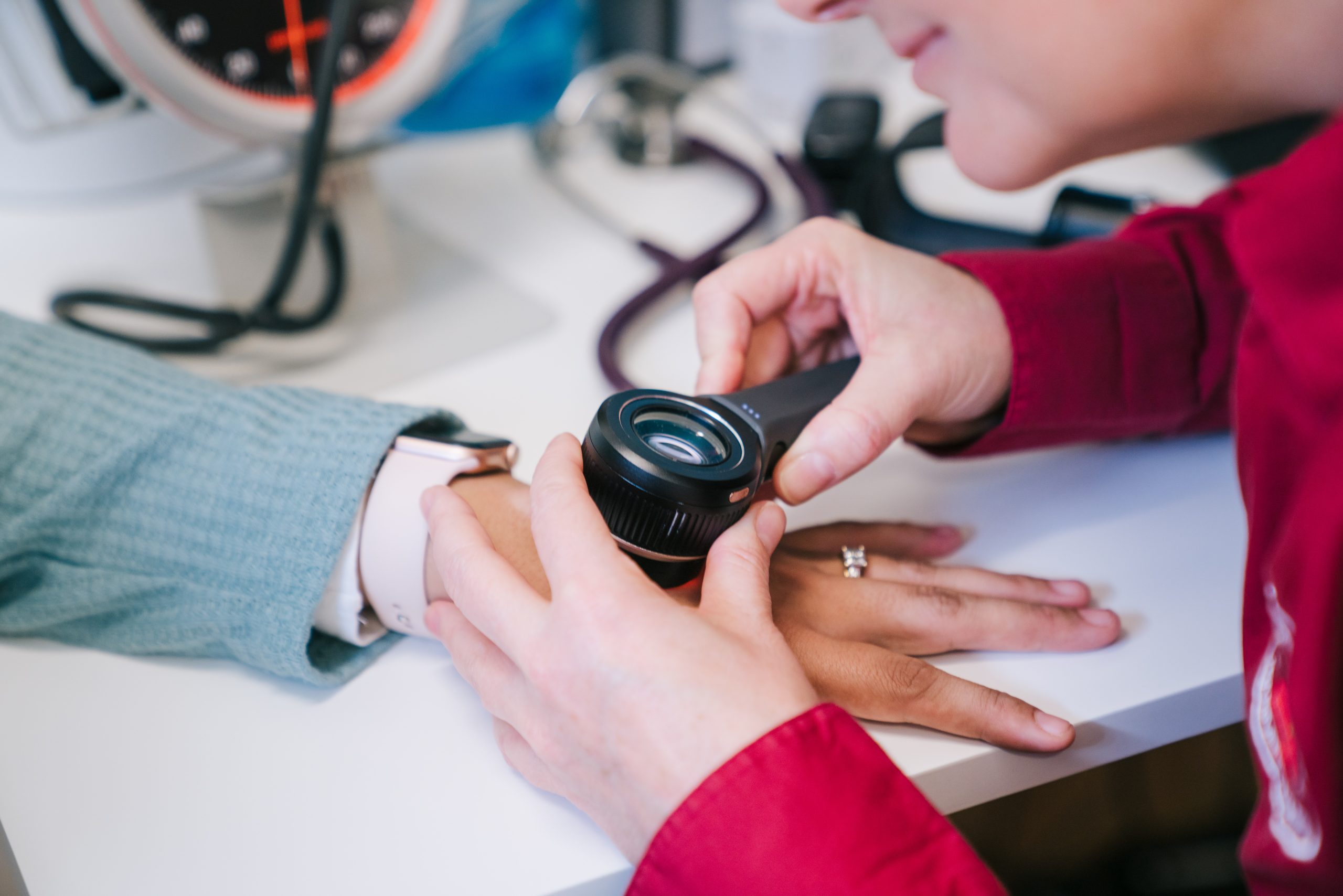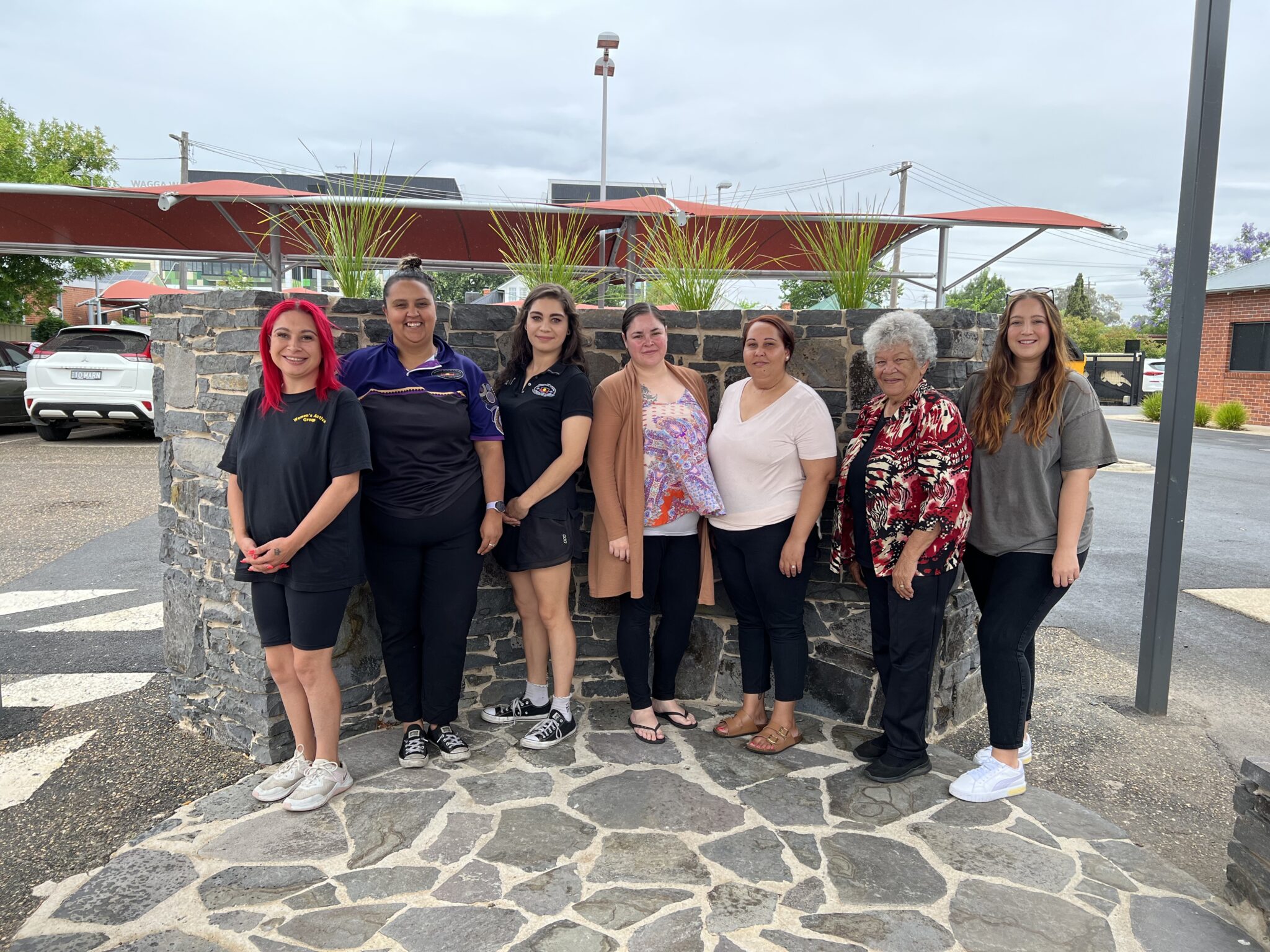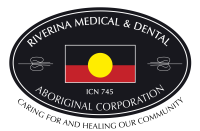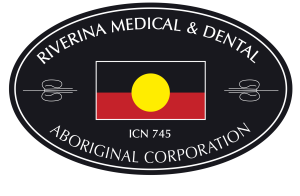RivMed’s Research Vision
In partnership with the Wagga Wagga community, we lead a research agenda driven by local priorities that improves health and wellbeing outcomes for Aboriginal people. As well as supporting the development of local research capacity within our community to empower mob to gain skills to lead research.


Research Partnerships
with RivMed
We welcome invitations from external researchers and universities to partner with us on research projects that align with our priorities, ways of doing research and have benefits for the Wagga Wagga community. We currently partner with several universities, external researchers and The Consortium on research projects.
LIST CURRENT RESEARCH PARTNERS:
- Poche Centre for Indigenous Health, Sydney Uni
- Daffodil Centre, Sydney Uni
- Sax Institute
- Newcastle Uni
- MLHD Knowledge precinct, researh and innovation working group
- Lowitja Institute

Ethical Guidelines
for Researchers
Ethical guidelines ensure that research with and about Aboriginal peoples follows a process of meaningful engagement and reciprocity between the researcher and the individuals and/or communities involved in the research.
Current Research Projects<span
[List]
Research presentations
and activities
- Breastfeeding workshop
- Lung cancer screening workshop
- AH&MRC Summit
Published Papers
- Garay J, Williamson A, Young C, Nixon J, Cutmore M, Sherriff S, Smith N, Slater K, Dickson M. Aboriginal Young People’s Experiences of Accessibility in Mental Health Services in Two Regions of New South Wales, Australia. International Journal of Environmental Research and Public Health. 2023 Jan 18;20(3):1730.
- Heris CL, Cutmore M, Chamberlain C, Smith N, Simpson V, Sherriff S, Wright D, Slater K, Eades S. Don’t Follow the Smoke—Listening to the Tobacco Experiences and Attitudes of Urban Aboriginal Adolescents in the Study of Environment on Aboriginal Resilience and Child Health (SEARCH). International Journal of Environmental Research and Public Health. 2023 Mar 4;20(5):4587.
- Nepal S, Bailey S, Newman J, Wright L, Smith N, Dickson M, Williamson A. Social and Emotional Wellbeing of Aboriginal Community Controlled Health Services Staff during the COVID-19 Pandemic. International Journal of Environmental Research and Public Health. 2023 Jun 6;20(12):6060.
- Sherriff S, Kalucy D, Tong A, Naqvi N, Nixon J, Eades S, Ingram T, Slater K, Dickson M, Lee A, Muthayya S. Murradambirra Dhangaang (make food secure): Aboriginal community and stakeholder perspectives on food insecurity in urban and regional Australia. BMC Public Health. 2022 Dec;22(1):1-7.
- Chando S, Dickson M, Howell M, Tong A, Craig JC, Slater K, Smith N, Nixon J, Eades SJ, Howard K. Delivering health programs for Aboriginal and Torres Strait Islander children: Carer and staff views on what’s important. Health Promotion Journal of Australia. 2022 Oct;33:222-34.
- Heris C, Thurber KA, Wright D, Thomas D, Chamberlain C, Gubhaju L, Sherriff S, McNamara B, Banks E, Smith N, Eades S. Staying smoke‐free: Factors associated with nonsmoking among urban Aboriginal adolescents in the Study of Environment on Aboriginal Resilience and Child Health (SEARCH). Health Promotion Journal of Australia. 2021 Oct;32:185-96.
- Riley T, Lovett R, Banks E, Thandrayen J, Sherriff S, Muthayya S, Spokes L, Wright L, Thurber KA. Markers of chronic disease risk in a cohort of Aboriginal children: findings from the Study of Environment on Aboriginal Resilience and Child Health (SEARCH). Australian and New Zealand Journal of Public Health. 2021 Dec;45(6):637-42.
- Skinner A, Falster K, Gunasekera H, Burgess L, Sherriff S, Deuis M, Thorn A, Banks E. Asthma in urban Aboriginal children: A cross‐sectional study of socio‐demographic patterns and associations with pre‐natal and current carer smoking. Journal of Paediatrics and Child Health. 2020 Sep;56(9):1448-57.
Understanding the scale, severity and causes of food insecurity amongst Aboriginal communities in NSW: A pilot study of food insecurity prevalence and severity (2022-23).
This project is a partnership between the Sax Institute, RivMed (Wagga Wagga), Tharawal (Campbelltown) and Bourke ACCHSs (and Maranguka Community Hub in Bourke), and Aboriginal Affairs NSW. Using an online food security survey tool which was adapted for use in Aboriginal peoples, this project measured the prevalence and severity and socio-demographic predictors of food insecurity among Aboriginal households in three local Government areas (LGAs) in urban (Campbelltown), regional (Wagga Wagga), and remote(Bourke) in NSW.
The project has been completed. Overall 3.3% percent of the respondents were categorized as being food secure (n=5) and the remaining 96.7% percent of the respondents (n=146) reported being food-insecure; 6.6% reporting marginal food insecurity (n=10), 30.5.% moderate food insecurity (n=46) and 59.6% (n=90) severe food insecurity. The prevalence of food security status was comparable in the three locations.
Cancer and Healthy Ageing in Aboriginal NSW Older Generations Study (CHANGES)
CHANGES is a National Health and Medical Research Centre funded grant in partnership with Cancer Institute of NSW. RivMed is one of five participating ACCHSs in the project, that will provide a detailed understanding of healthy ageing and cancer and first-of-its-kind data about current cancer care for older Aboriginal people in NSW and how this meets their needs and preferences.
CHANGES is a multi-stage study designed to provide a better understanding of healthy ageing in remote, regional and urban settings and how health services can be optimally provided for Aboriginal people. Stage 1 (enablers, barriers and opportunities for optimising participation in preventative health programs and services) and Stage 2 (understanding of cancer and experience of cancer care system with an aim to improving cancer outcomes for older Aboriginal people) have been completed. In total, n=85 interviews were conducted for stage 1 (n=15 at RivMed) and n=72 interviews for stage 2 (n=10 at RivMed). Two CHANGES activities are still to be completed: interviews with mainstream cancer healthcare providers in urban, regional and remote locations; mapping access to cancer services in urban, regional and remote locations in NSW.
Decolonising lactation care to support the initiation and maintenance of breastfeeding among First Nations women
This project is a partnership between RivMed (Wagga Wagga), Tharawal (Campbelltown), the Sax Institute and a number of Aboriginal and non-Aboriginal researchers. It aims to understand how to best support First Nations women to breastfeed and apply this knowledge to develop and pilot test a comprehensive breastfeeding program for women at the two partner Aboriginal Community Controlled Health Services (ACCHS).
It also aims to co-develop a framework for an Aboriginal lactation training program, incorporating the World Health Organisation Nurturing Care Framework and guidelines for breastfeeding. Initial discussions have begun with staff at RivMed to plan the project and an application to the Aboriginal Health and Medical Research Centre Human Research Ethics Committee is in preparation. An investigators’ meeting is planned for first quarter of 2024.
Yalbilinya miya (learn together): First Nations led program to support Koori women’s breastfeeding journey
Yalbilinya miya is a project designed and led by RivMed to better understand the challenges local Aboriginal women face around breastfeeding and hear their thoughts on what types of supports they think would be useful to help Aboriginal women in their journeys of breastfeeding. The project is funded through a two-year grant from the Lowitja Institute and with research support provided from the Poche Centre for Indigenous Health and the Sax Institute.
This two-part project aims firstly to provide knowledge of the perspectives and experiences of breastfeeding among Aboriginal women in the Wagga Wagga area gathered through yarning circles with local Aboriginal mothers and Elders. Secondly this project aims to decolonise breastfeeding support by using this knowledge gathered from local women to develop a culturally responsive support program that provides wraparound care including lactation training of Aboriginal health workers. The first step of the project is now complete, and the development of the program is currently underway and will start in early 2024.

